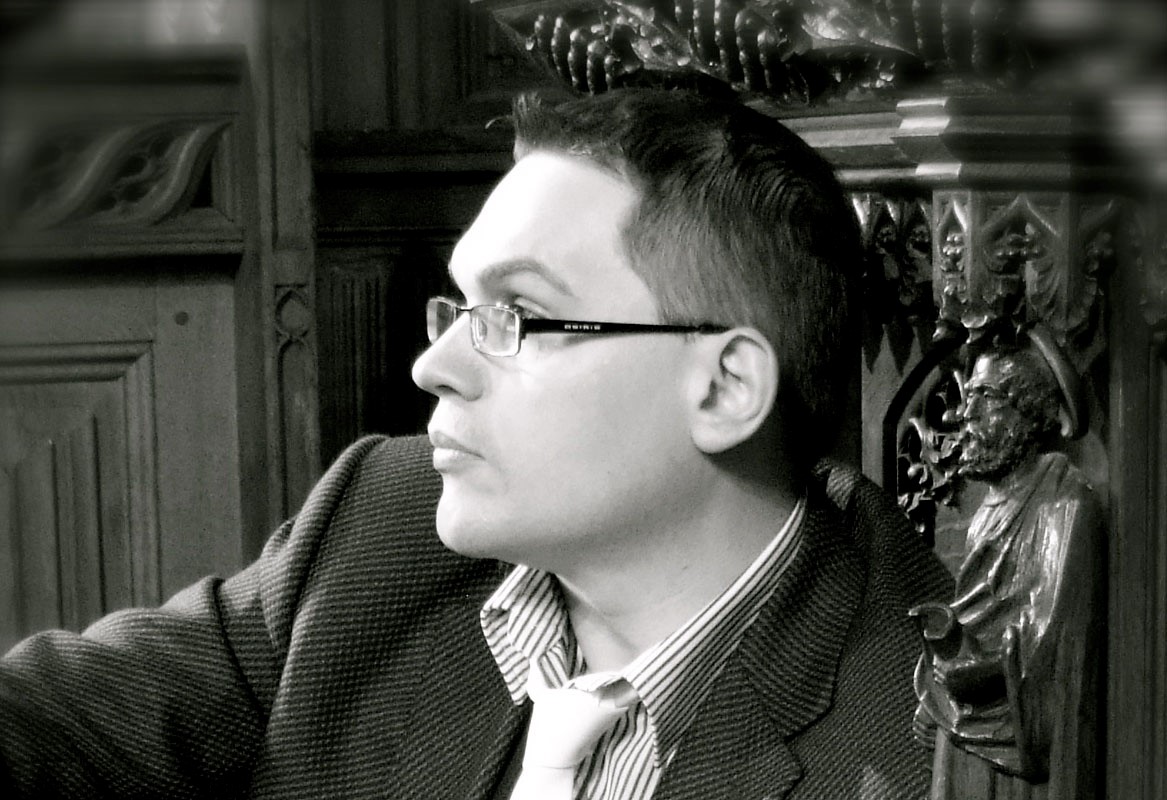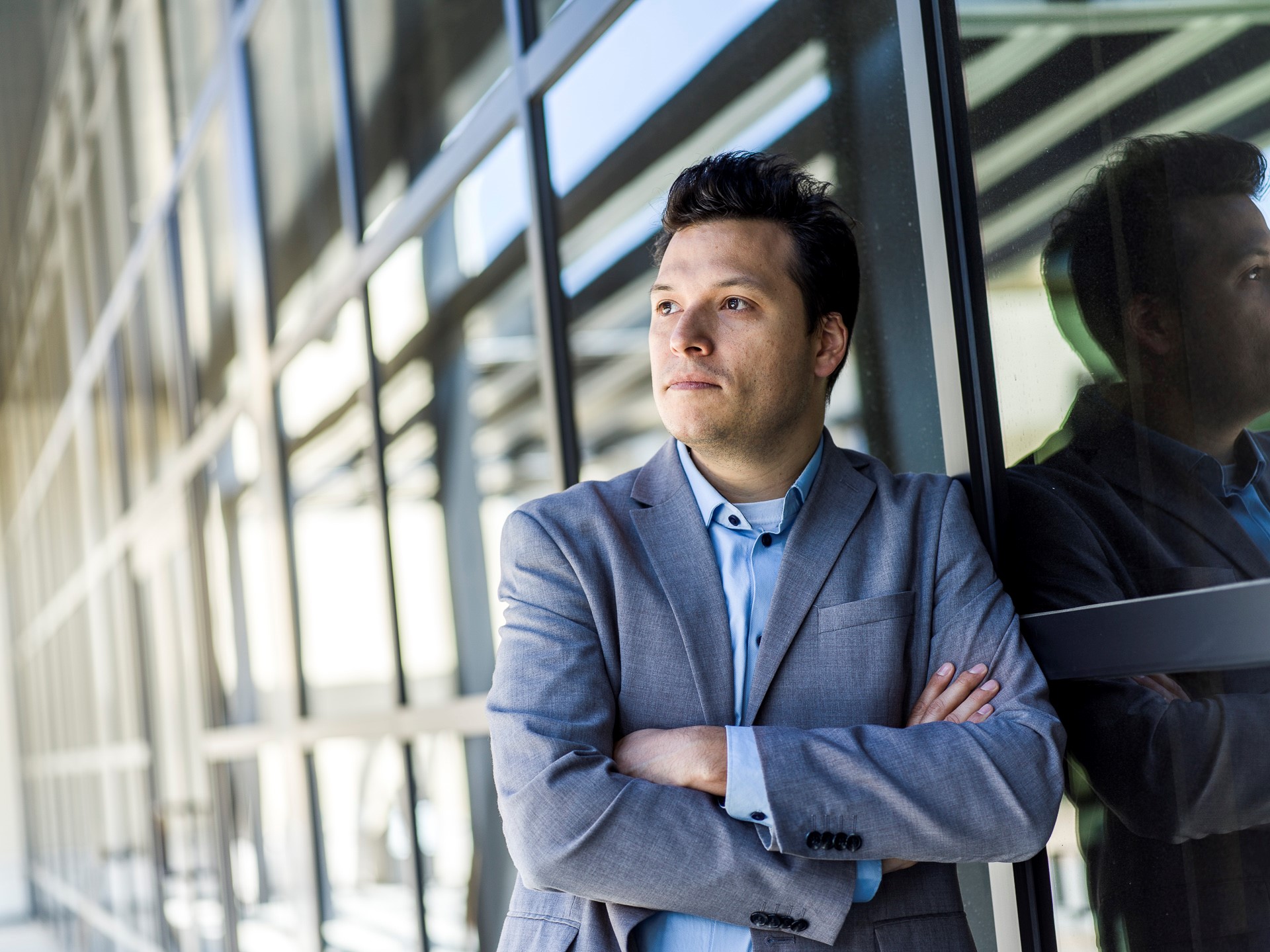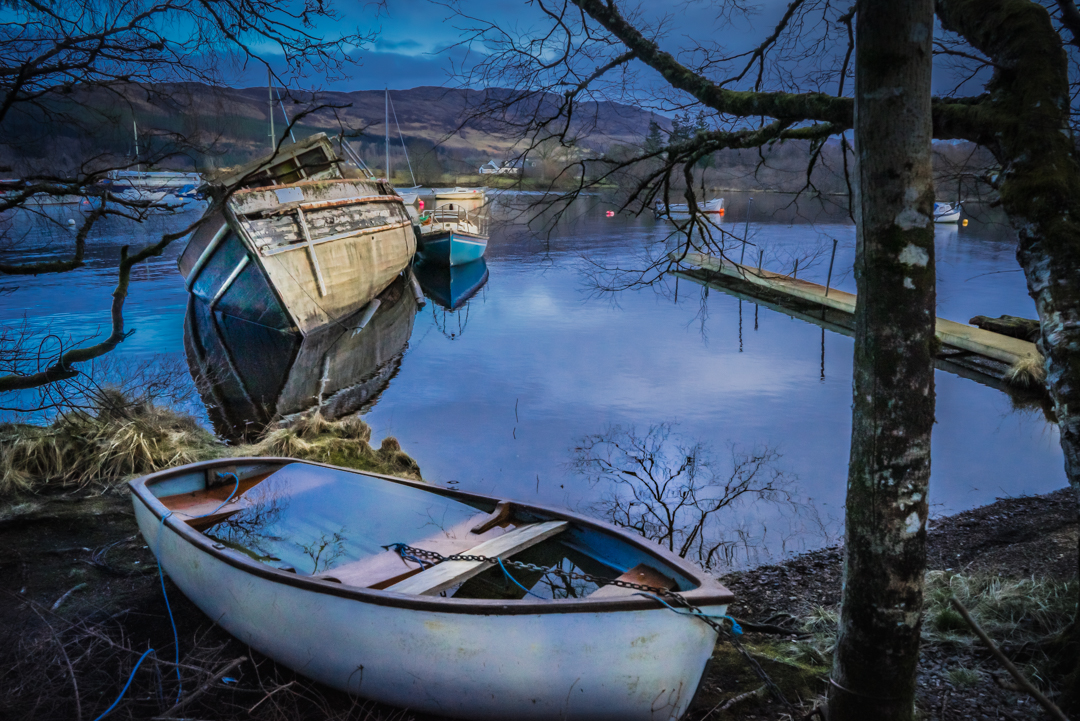Paul Mealor is a prolific Welsh composer whose luminous, effervescent music – including “Ubi caritas” performed at the Royal Wedding Ceremony of His Royal Highness Prince William and Catherine Middleton – is beloved around the world. In 2011, he became the first classical composer to hold both classical and pop chart No. 1s at the same time (in December 2011) for his song “Wherever You Are.” His music reflects an expansive musical language incorporating elements from modal church music and British folk song to contemporary classical and popular music.


JR: How did your musical and spiritual journeys begin? Are they related in any way?
PM: I think, for me, the relationship between faith and music began as a boy growing up on the Island of Anglesey in Wales when I had a near-death experience and, whilst drowning in the water, felt a sudden warmth and peace come over me and I surrendered to death. I was taken out of the water and resuscitated. I, as a nine-year-old boy wanted to find out what that warmth was, and I was led to the church.
On entering St Asaph Anglican Cathedral to meet with the Dean, the choir of boys and men were rehearsing, and I just knew that it was that, singing and composing, that I was being called to do. That was my ministry, in a way. There I joined the choir as a kind of surrogate priesthood.
JR: So death was literally the beginning of new life for you. I’m curious to know: because of this baptismal-like moment, does water have a unique significance for you?
PM: Yes, I guess that is true. For me as a composer, I have always been trying to find that “warmth” which came over me in the water; that deep feeling of peaceful warmth. Each of my compositions is, in effect, a human reflection upon that warmth and yes, water is incredibly important to me. Weirdly, I had never thought about that before; but I have to be by water – my two homes, one in Wales and one in Scotland are right by the sea AND I have a boat and love nothing more than being in it. People also say that my music has a type of ebb and flow quality to it also, like the water… I am constantly called to water…

JR: What’s your first memory of music?
PM: Hearing the St Asaph Cathedral Choir sing “See, See the Word is Incarnate” by Gibbons was the first time that music really “moved me” – I was nine. However, my first memories of music go right back to my parents and grandparents who always had music on – classical, jazz, country and western, pop, TV tunes – everything went on. They are a very music-loving group of people. And, hymns of course. My maternal grandmother LOVED her hymns and gave me a love of them too. She was always singing hymns.
JR: Some of our readers may not be familiar with classical music. What would you want them to know about this genre and how do you believe listening to this music can enrich their lives?
PM: Classical music, at its very best, is some of the profoundest human utterances to God. If you adore the greatest architecture, the wonder of human painting and sculpture, then you must see how humanity has painted sound in architectural sculptures to God. Try listening to small sections or movements to begin with – J S Bach and Chopin are good places to start, or the great English church composers, Thomas Tallis and William Byrd. Wonderful music…
JR: While the lasting effect of COVID-19 on choirs and singing groups may not yet be known, how do you envision the future of singing ensembles?
PM: I have absolutely no doubt that we will conquer COVID-19 and find a way to sing safely; however, for now, choirs will need to find ways to raise their voices in praise to God virtually. Technology is getting better and better and soon we will be able to sing in real time, balanced, together. This is not ideal, but it’s better than nothing. I long for the day when we can all join together and sing. And, what a sound that is going to be!
JR: What is life “in quarantine” like for you as a composer?
PM: Apart from really missing singing and conducting, friends and my social life, the daily routine of composing hasn’t really changed for me. Every morning after exercise and breakfast, I spend four to six hours at my desk and piano, composing music. It’s the part of the day I look forward to most. For me, this intense act of drawing something from nothing is almost like praying – it’s a profound experience and I come out of my study in a tired but refreshed state.
JR: As an active composer over the past 20 years, what trends or changes do you see in contemporary concert music? Are there any changes that you would like to see?
PM: There have been many changes. Far too many to say here; but the one I am now beginning to see more and more is that composers are not necessarily following a school of composition. Instead, they’re hearing what’s in their ears and hearts and are writing music, which is fresh and true to them, not following any preconceived idea of what new music should be. And, that is wonderful to see and hear.
JR: How has your Christian faith shaped your musical life and output? Are there aspects of your faith that have been influenced by your work in music?
PM: I think who you are as a person really shapes what you do, if you are true to yourself. In many ways, all of my work is a kind of reflection upon the loving God I see and witness. I am drawn to texts which show this love and compassion. Every time I find a text, I reflect upon it so that I can compose. And, whilst reflecting, I’m thinking about my faith in a deep way. They are intertwined.
JR: Is there a specific piece of music that you’ve returned to multiple times and why?
PM: Yes, I think it is my work, “Peace.” This is a setting of Saint Francis of Assisi’s “make me a channel of your peace.” I think it speaks to me so much.
JR: Is there a particular biblical theme or passage of Scripture to which you find yourself returning often?
PM: When I was a young chorister, the Bishop preached a sermon on the Beatitudes. I never forgot that sermon. The Beatitudes are, for me, the essential lifeblood of a Christian. I adore them and return to them daily…
Blessed are the poor in spirit, for theirs is the kingdom of heaven.
Blessed are those who mourn, for they shall be comforted.
Blessed are the meek, for they shall inherit the earth.
Blessed are those who hunger and thirst after righteousness’, for they shall be satisfied.
Blessed are the merciful, for they shall obtain mercy.
Blessed are the pure in heart, for they shall see God.
Blessed are the peacemakers, for they shall be called children of God.
Blessed are those who suffer persecution for righteousness sake, for theirs is the kingdom of heaven.
To hear more of Paul’s music, including his setting of The Beatitudes, check out his recently released Blessing and Serenity albums, available for purchase online.
arkivmusic.com/classical/album.jsp?album_id=2299722
signumrecords.com/product/blessing-the-music-of-paul-mealor/SIGCD613/
Email interview conducted by Josh Rodriguez, October 12-13, 2020.
The Kirby Laing Centre for Public Theology in Cambridge. Charity registered in England and Wales. Charity Number: 1191741
Kirby Laing Centre, The New Mill House, Unit 1, Chesterton Mill, French’s Road, Cambridge, CB4 3NP
© 2022 The Kirby Laing Centre for Public Theology in Cambridge